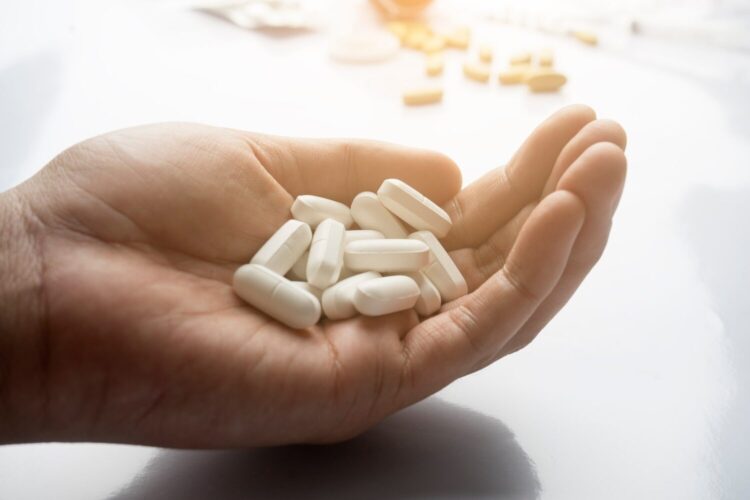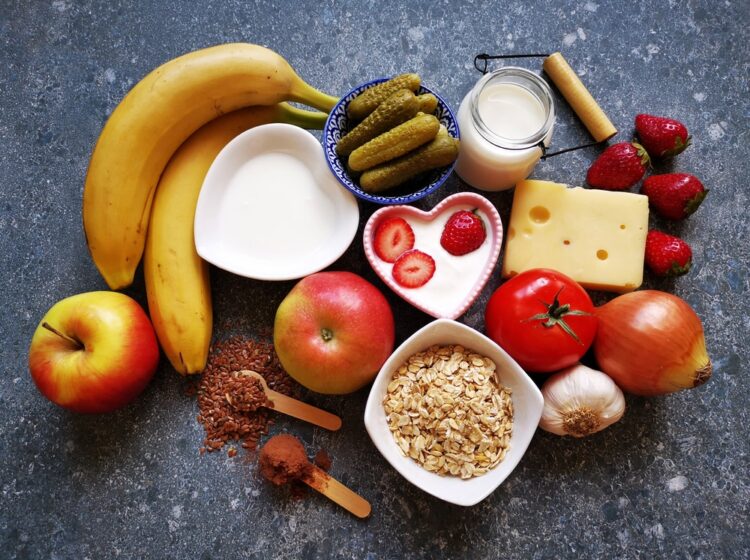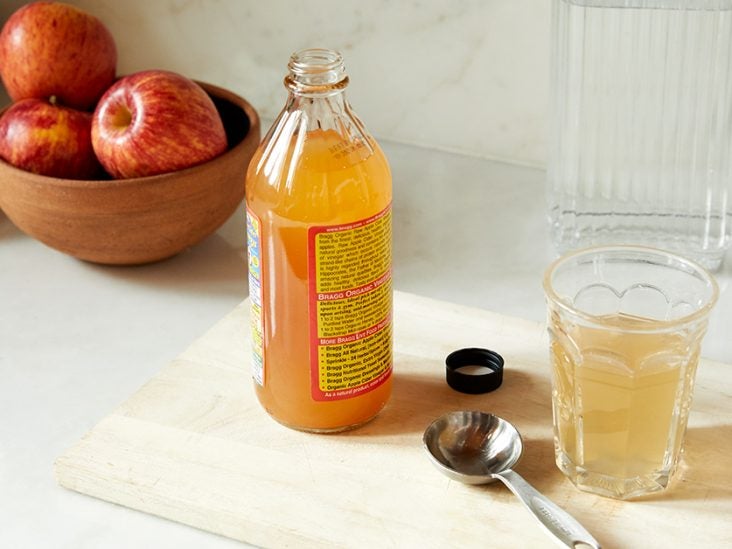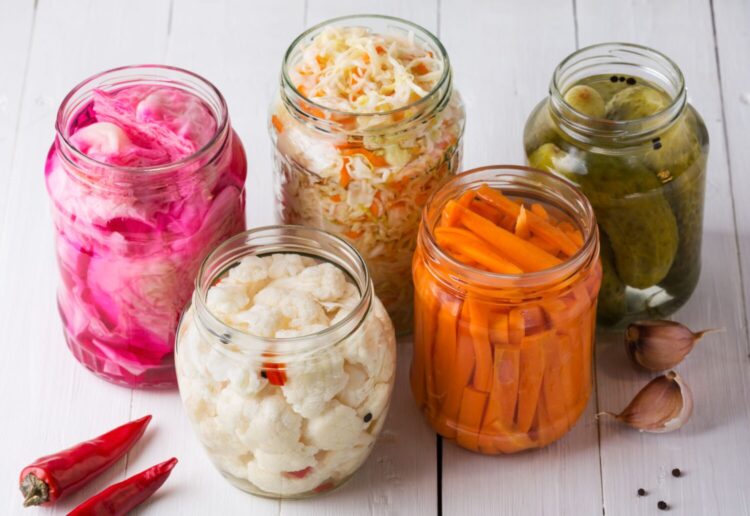The digestive system is a very complex part of the body with major responsibilities. All the food you consume goes through this path, being processed and absorbed. That’s why what you eat can seriously affect your health — anything your gut doesn’t like can result in a bad reaction.
Learning how to understand your digestive system and what’s good or bad for it is necessary for improving your health. Perhaps two of the most important supplements for your gut are probiotics and prebiotics. Keep reading to learn more about these gut health heroes.
What’s the Difference?
Chances are you’ve probably heard something about probiotics already — at least enough to become familiar with the word. However, you might not know much about prebiotics. While the two are similar, they ultimately perform different functions related to the gut.
Probiotics

When it comes to the gut, there is a healthy balance of good and bad bacteria. This is called your intestines’ microbiome. Within this complex internal ecosystem, the healthy bacteria are probiotics. They aid in digestion and regulation of immune health.
Found in both your body and certain foods, these microorganisms seek to fight the unhealthy bacteria. Think of them as a parallel to white blood cells keeping the viruses out of your bloodstream. When you take probiotic supplements, you’re adding more of the good bacteria into your gut. This sends in the reinforcements to help fight off the bad bacteria and restore balance to the microbiome.
Prebiotics

So, probiotics are a kind of bacteria you want. What, then, are prebiotics? These microorganisms serve as the food, or fuel, for probiotics. Prebiotics can be commonly found in fiber-rich foods.
Probiotics usually function alright on their own, but having a supplement that combines both pro- and prebiotics will perform more efficiently. And if you’re having tummy troubles frequently, you’d be wise to add both supplements to your diet.
How to Add Them to Your Diet
Luckily, there are several ways to harness the powerful benefits of pro- and prebiotics. Here are just a few ways to add them to your diet:
Through ACV

You might be surprised to learn that the popular cleaning agent is actually a great source of probiotics. Apple cider vinegar (ACV) is made by fermenting apple juice. This process uses a form of yeast, which is a type of bacteria that is healthy for humans. This yeast and bacteria make what is referred to as “the mother,” which can be seen as a cloudy, spongy, or stringy mass in some unfiltered ACV liquids.
It’s important to note ACV’s probiotics are lost when put through a filter. Many companies strain the substance to make the liquid more translucent. However, it’s often in your best interest to select the ACV that has a murky appearance, because this means it hasn’t been filtered so thoroughly.
You might be wondering how to add vinegar to your diet. ACV can be consumed on its own in small amounts, around one to two tablespoons per day. However, drinking it straight can lead to the wearing down of your teeth’s enamel. Plus, it doesn’t taste the greatest as a beverage. ACV has become popular enough as a supplement that it comes in vitamin-like form. There are lots of pills out there, but ACV gummies are a tastier option. If you want to know more about them, click here.
As a Supplement

If you’re looking for a bit of variety, there are many kinds of probiotic supplements lining the shelves. From gummies to chewables to pills, there really are a lot of probiotics to choose from. But how do you decide which to use?
Many probiotic vitamins are targeted for different purposes. For example, some are marketed as being immunity boosters and are loaded with vitamin C in addition to probiotics. And as mentioned previously, others are packed with both pro- and prebiotics. This is usually your best bet if you want to focus purely on improving gut health.
As a Snack
Getting probiotics through a supplement will be the strongest and most effective way. However, you can also start out small by adding probiotic-rich foods to your diet. Or, you could always do both, depending on how much you want to strengthen your gut’s health.
Try enhancing your diet through eating probiotic-rich snacks. These include fermented drinks such as kombucha. (Fair warning, it does have a unique smell.) And fermented foods like sauerkraut, certain pickles, and yogurt. Thanks to many commercials, yogurt is perhaps the most well-known food packed with probiotics.
To add snacks with prebiotics to your menu, look no further than two of the most staple snacking fruits out there. Bananas and apples are loaded with prebiotics plus certain vitamins and minerals such as vitamin C and potassium, respectively. You can even slice these fruits up and use them as a topping for another food teeming with prebiotics — oatmeal. Oats contain lots of probiotic fuel, so eat hearty!
As Part of Your Meal

Getting in some snacks full of pro- and prebiotics is great, but you can also incorporate these nutrients into your meals. Are you a fan of sandwiches? Using sourdough bread as your base will introduce probiotics into your diet. Throwing some fermented pickles on your burger adds some, too.
Fermented, or pickled, foods are often rich in probiotics. Kimchi, a type of Korean pickled cabbage, is a spicy yet flavorful dish. Try adding this to some traditional ramen for an extra kick that’s good for your gut. For a less spicy alternative, try sauerkraut — another type of pickled cabbage with a mellower flavor. Germanic countries serve this as a side dish, but you can also try it on a Reuben sandwich or hot dog.
Don’t forget about the prebiotics, though! According to the Mayo Clinic, foods rich in fiber are generally loaded with the fuel for probiotics. This would include whole grain breads, cereals, and pasta. These can be incorporated into many types of dishes, making it easy to add the prebiotics you need.
Additionally, certain vegetables are packed with prebiotics. Garlic and onions are bulbous roots that can be thrown into practically any dish. They give a nice, savory flavor, and garlic is known to help with boosting your immunity. Leeks are similar to shallots and green onions and have a similar flavor, though they boast having prebiotics. These can be a nice add-in for soups and stir fry.
Start out Small
As they say, “too much of a good thing is a bad thing.” And this is definitely true when it comes to adding certain vitamins and nutrients to your diet. Adding too much at once might cause some discomfort as your gut processes the rush of pro- and prebiotics. This could result in gas, bloating, or even diarrhea.
That being said, you should still consider adding pre- and probiotics to your health regimen. Just start with small quantities and slowly build it up. Your gut will thank you later.
 Hi Boox Popular Magazine 2024
Hi Boox Popular Magazine 2024



